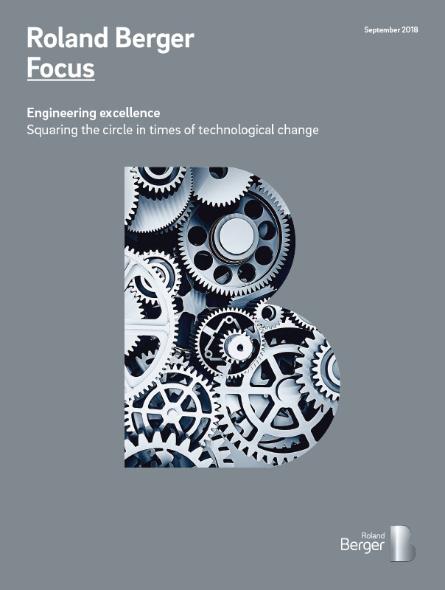Engineering excellence 2018
![{[downloads[language].preview]}](https://www.rolandberger.com/publications/publication_image/RB_DIG_18_001_05_Publications_426_Engineering_Excellence_Cover_download_preview.jpg)
The engineering excellence framework enables you to transform your business, while lowering your engineering costs by up to 25%.


Electrification, automation and digitalization are bringing about fundamental change for engineering-driven firms. The challenges facing these companies are twofold. On the one hand, firms must adapt to the latest technologies, for example autonomous vehicles or artificial intelligence, and develop corresponding expertise. At the same time, they need to improve their current product portfolio, while facing growing pressure from competition, falling prices and ever tighter budgets.
The answer to this paradoxical problem is what we call "engineering excellence". With a thorough and systematic analysis, firms can identify inefficient or wasteful structures and processes in their organizations. Following this, they can then set their ambition level and set about making the required changes.
In our focus "Engineering Excellence": Squaring the circle in times of technological change we identify 10 key areas for improvement. Cost savings of 15-25 percent are possible for firms that address all relevant areas. These include:
Following our engineering excellence approach will not only solve problems in your current design and development processes, it will also set you up for future success. By establishing best practices and a mindset geared towards innovation you create an organization that thrives in times of technological disruption. Download the full study below to explore the topic further and read our full analysis, which includes a case study on a leading automotive supplier that achieved costs savings of 18 percent by addressing three relevant areas.

![{[downloads[language].preview]}](https://www.rolandberger.com/publications/publication_image/RB_DIG_18_001_05_Publications_426_Engineering_Excellence_Cover_download_preview.jpg)
The engineering excellence framework enables you to transform your business, while lowering your engineering costs by up to 25%.
